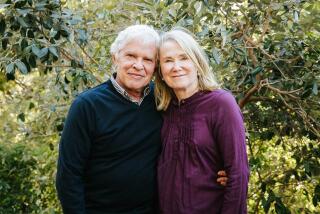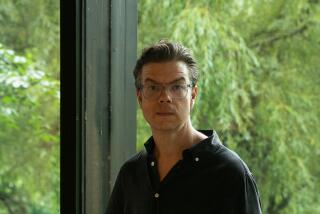Alexander Lerner, 90; Leading Soviet ‘Refusenik’
- Share via
JERUSALEM — Alexander Lerner, an eminent cyberneticist and a leading member of the “refusenik” movement that promoted Jewish emigration from the former Soviet Union, has died, a spokeswoman for an Israeli science institute said Tuesday. He was 90.
Lerner died April 5 in Rehovot, the spokeswoman for the city’s Weizmann Institute of Science said. The institute had not made an official announcement of his death.
Lerner began what was to be a 17-year struggle to leave the Soviet Union in 1971, when he applied for permission to go to Israel.
Lerner’s decision to apply for an exit permit resulted in his being fired from his position as head of the Department of Large Systems Control Theory at the Soviet Academy of Sciences. He was also stripped of his membership in the Council of Cybernetics and the Soviet Academy of Sciences.
It also brought about the sudden cancellation of his privileges as a senior member of the Soviet scientific elite: a five-room apartment in Moscow, a summer home in the country, two cars and frequent foreign travel.
Lerner specialized in the connection between electronic systems and human control mechanisms, such as the brain.
His textbook, “Fundamentals of Cybernetics,” remains one of the standard works on the subject. In all, he wrote 12 books and more than 170 scientific papers.
In January 1988, he was finally granted permission to leave the Soviet Union.
In Israel, Lerner accepted an appointment in the mathematics department at the Weizmann Institute, where he pursued a number of projects including the development of an artificial heart and the construction of a mathematical model that attempted to predict the behavior of developed societies.
Lerner was born in the Ukraine in 1913. He earned a diploma in electrical engineering at the Moscow Institute of Energetics in 1936 and a doctorate from the same institution in 1939.
During World War II, Lerner took part in the construction of a metallurgical factory using automatic equipment produced in the United States.
He also served as chief engineer of the Central Autonomous Laboratory at the Soviet Ministry of Ferrous Metallurgy in Moscow.
He is survived by a daughter, Sonya Levin, and a son, Vladimir. Lerner’s wife, Judith, died in the Soviet Union in 1981.
More to Read
Sign up for Essential California
The most important California stories and recommendations in your inbox every morning.
You may occasionally receive promotional content from the Los Angeles Times.













